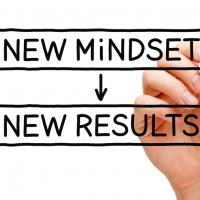With Metrics and Measurement, You Need to Shift Your Mindset

You can try to slot something new like agile or DevOps into your team without altering your basic formula, but you’ll more than likely fail to see the intended benefits if you don’t make fundamental changes to your culture and mindset. When it comes to change, metrics and measurements fall into that same camp.
Metrics are all about feedback. Similar to how a fitness tracker keeps data that allows you to optimize your workout and improve physical activity, metrics and measurement provide you with a suite of data used to advance your testing and development efforts—especially within an agile environment.
Larry Maccherone, the director of analytics and research at AgileCraft, explains measurement and metrics in terms of sports. In the NBA, it was found that certain teams actually became more effective when their superstars were injured, sick, or just off the court. Why? You have to look at the data.
“How many points you score in a game is a function of how often you take the shot times what the percentage likelihood it is to go in, and he was a high scorer for the NBA only because he took more shots than all of his teammates who had a higher percentage likelihood of sinking the basket,” Maccherone details to StickyMinds. “He was literally stealing balls from his teammates who had a better chance of getting it in. The outcome that the team wants is winning games, and the outcome that maybe the individual wants is to be high scorer so he can re-negotiate his contract.”
The data might seem obvious, but in order to see what’s in front of you and effectively put it to use, you need to shift your thinking. You must take the information that’s given to you, study it to see patterns, and adjust how things are done from there.
As Maccerone points out later in the interview, you have to change the way you do things, and before you can accomplish that, you have to change the way you think.
You can start by looking at your decisions as forecasts. Look at what you’ve done in the past, understand what worked and what didn’t, and shift what you do the next time based on the results. It might seem simple, but you can more easily predict an outcome if you look at the data available to you and make judgments based off that.
We too often continue to do things the way they’ve always been done to maintain status quo. With metrics and measurement, you can look at your pool of data, decide what’s valuable, and adjust what you do for the sake of better results. Change isn’t easy, but to optimize your team, make sure you’re studying your data and allowing yourself to see when change is needed.

